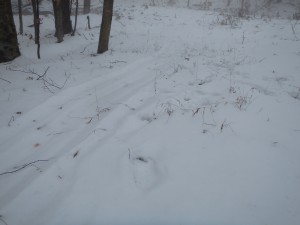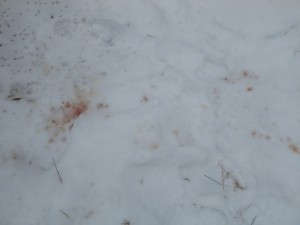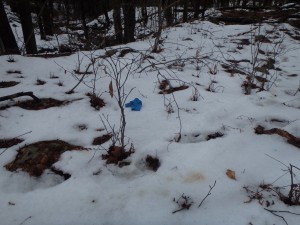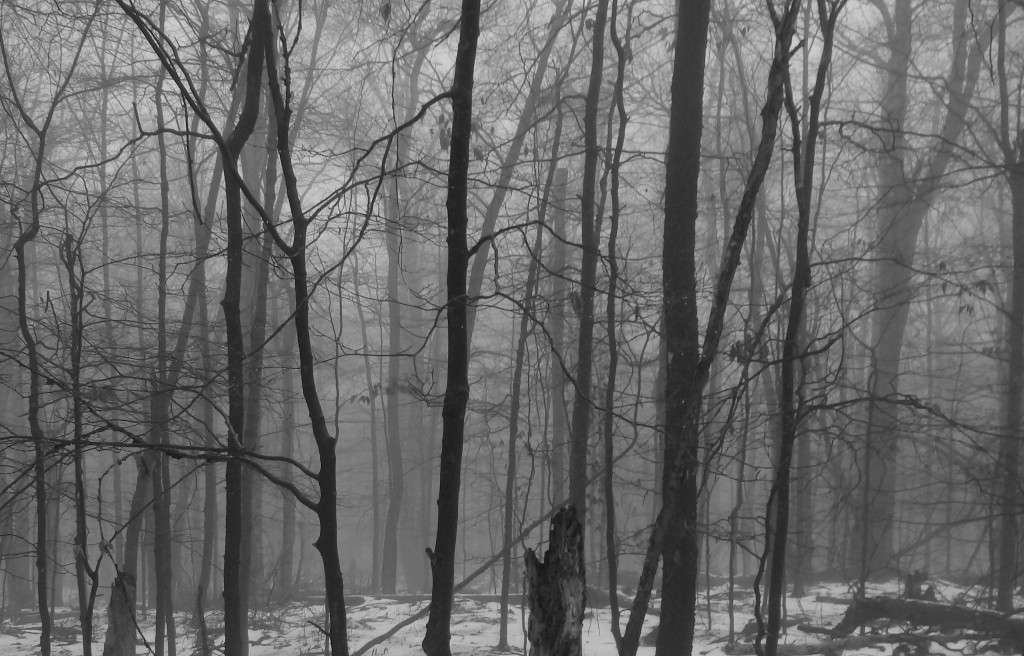A very well-put, thoughtful piece by Erik Lindberg on how even the most liberal democrats and greens are probably climate change deniers nearly as myopic as any Republican. The democratic problem is a belief that no serious change of lifestyle is required: that all we need to do is shift the sources of our energy draws, and we will save the planet – just put the plug in a different outlet. The different outlet is renewables. The problem with this is that renewables almost certainly can’t produce enough energy to allow us to live the way we do now. In a renewable, sustainable world, everything would be different: we would necessarily be returned to the lifestyle human beings have had for millennia. This is the kind of traditional, Christian life the traditional Christians of America have very little interest in.
But the “green energy” people don’t want it either. But in all probability the only green energy is the energy we don’t use. Simplicity is the only green option. But since almost no one wants that option – it involves giving up so much power – they’ll talk about something else. As Lindberg puts it:
While the transportation sector is responsible for a lot of our emissions, the carbon footprint of any one individual has much more to do with his or her overall levels of consumption of all kinds—the travel (especially on airplanes), the hotels and restaurants, the size and number of homes, the computers and other electronics, the recreational equipment and gear, the food, the clothes, and all the other goods, services, and amenities that accompany an affluent life. It turns out that the best predictor of someone’s carbon footprint is income. This is true whether you are comparing yourself to other Americans or to other people around the world. Middle-class American professionals, academics, and business-people are among the world’s greatest carbon emitters and, as a group, are more responsible than any other single group for global warming, especially if we focus on discretionary consumption. Accepting the fact of climate change, but then jetting off to the tropics, adding another oversized television to the collection, or buying a new Subaru involves a tremendous amount of denial. There are no carbon offsets for ranting and raving about conservative climate-change deniers.
I think we all understand this to some extent – which is why the “ranting and raving” has such a tone of hysteria to it: nothing adds energy to our accusations like the subtle feeling that we, too, are guilty.
Lindberg makes some interesting and plausible claims about what the middle-class American/European lifestyle really requires in terms of resources:
This global economy may seem like it needs little more than an army of creative innovators and entrepreneurs tapping blithely on laptop computers at the local Starbucks. But the real global economy still requires a growing fleet of container ships—and, of course, all the iron and steel used to build them, all the excavators used to mine it, all the asphalt needed to pave more of the world. It needs a bigger and bigger fleet of UPS trucks and Fed Ex airplanes filling the skies with more and more carbon dioxide, it needs more paper, more plastic, more nickel, copper, and lead. It requires food, bottled water, and of course lots and lots of coffee. And more oil, coal, and natural gas. As Juliet Schor reports, each American consumer requires “132,000 pounds of oil, sand, grain, iron ore, coal and wood” to maintain our current lifestyle each year. That adds up to “an eye-popping 362 pounds a day.”
But when you look at the massive levels of consumption in our society of everything – gravel, cement, road salt, deodorant, apples, corn, cosmetics, beer, paper, everything – you realize just how much must be required to make all these things we so take for granted. We don’t need most of them, of course – that’s the great secret – but the problem is that foregoing them requires such a sacrifice of personal power.
Because we have come to take the power and energy-concentration of fossil fuels for granted, and see our current lifestyle as normal, it is easy to ignore the way the average citizens of industrialized societies have an unprecedented amount of energy at their disposal. Consider this for a moment: a single $3 gallon of gasoline provides the equivalent of about 80 days of hard manual labor. Fill up your 15 gallon gas tank in your car, and you’ve just bought the same amount of energy that would take over three years of unremitting manual labor to reproduce. Americans use more energy in a month than most of our great-grandparents used during their whole lifetime. We live at a level, today, that in previous days could have only been supported by about 150 slaves for every American—though even that understates it, because we are at the same time beneficiaries of a societal infrastructure that is also only possible to create if we have seemingly limitless quantities of lightweight, relatively stable, easily transportable, and extremely inexpensive ready-to-burn fuel like oil or coal.
Throughout history there has been a continual chorus of praise of the simple life, from a human tradition where the word “poverty” has often been listed as one of the desirable things, for Cistercians the kind of thing you make a vow to follow, for Francis a lover, for Diogenes the only way to live “in harmony with nature.” Thoreau is our American soloist from the same chorus. They rested their case entirely on spiritual arguments. But how much more clear is the case now, when simplicity is recommended not only by our own happiness, but by the well-being of every other beautiful living thing on the planet.





Torturers.
09-Dec-14I don’t like to linger very long on what human beings do to one another – it’s not really the kind of thing that makes one better. I don’t like Holocaust Museums, and Holocaust Studies, and all that. The only decent reaction I can come up with is something like the Nuremberg Trials – put these men in the docket for a few days, let them say their say about how necessary and justified it all was, have the court reporter write it all down, hang them and go home. I doubt that we will get any justice on this planet – and God will be adequate to the task anyway, I do not doubt – but presuming that this senate report on U.S. torture tactics is true, then every single person whose hands are stained by this – including President Bush and perhaps Obama as well – should be put on trial and the guilty ones should hang for it.